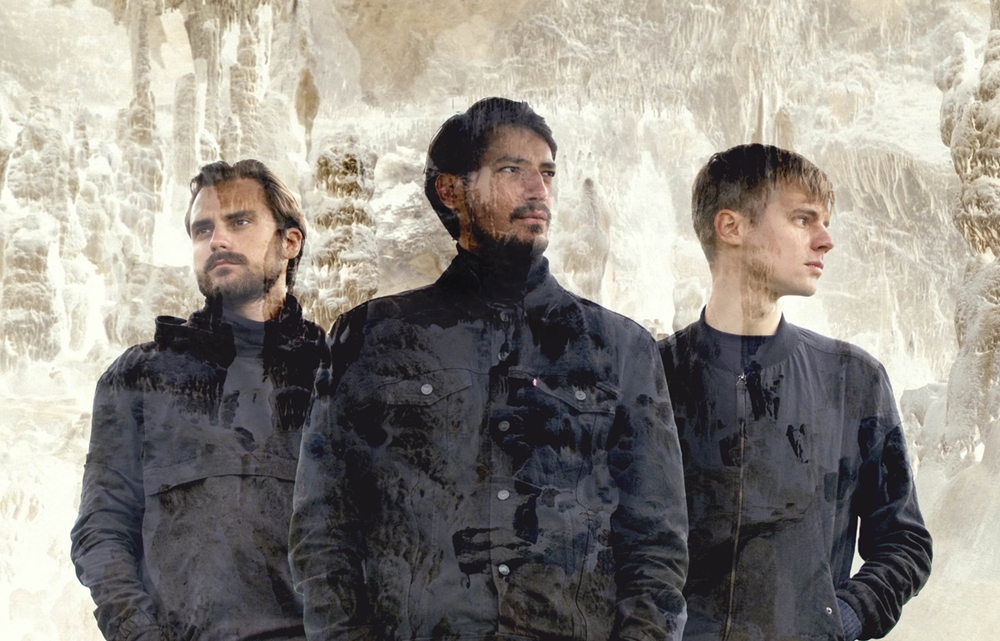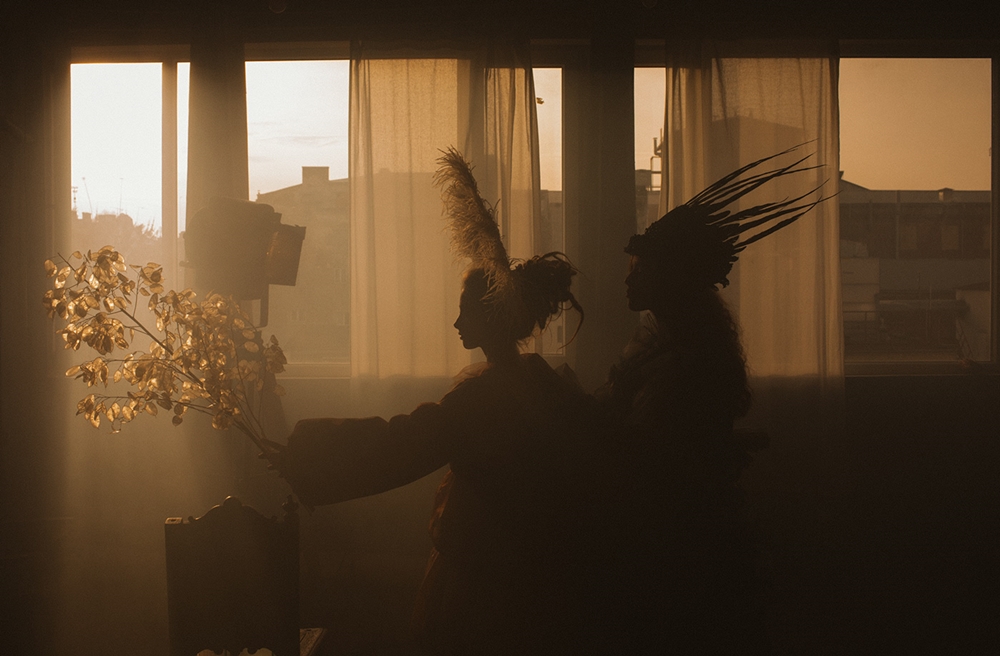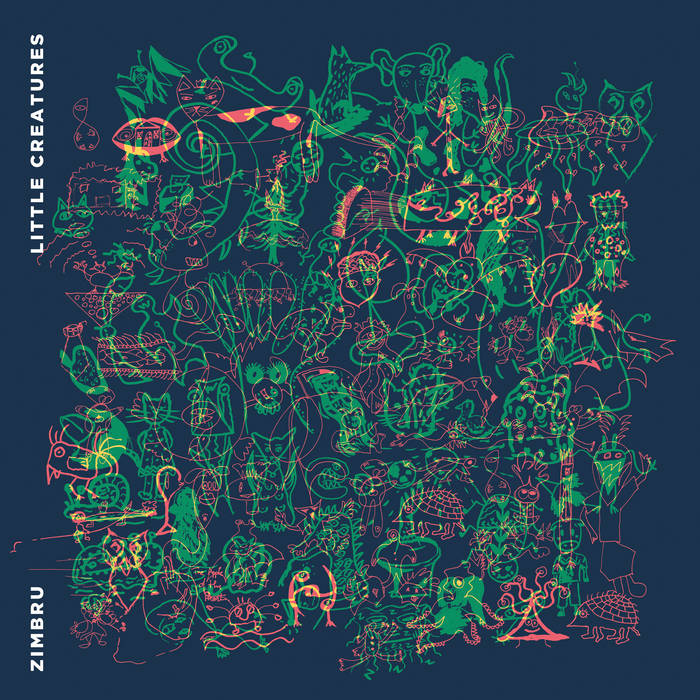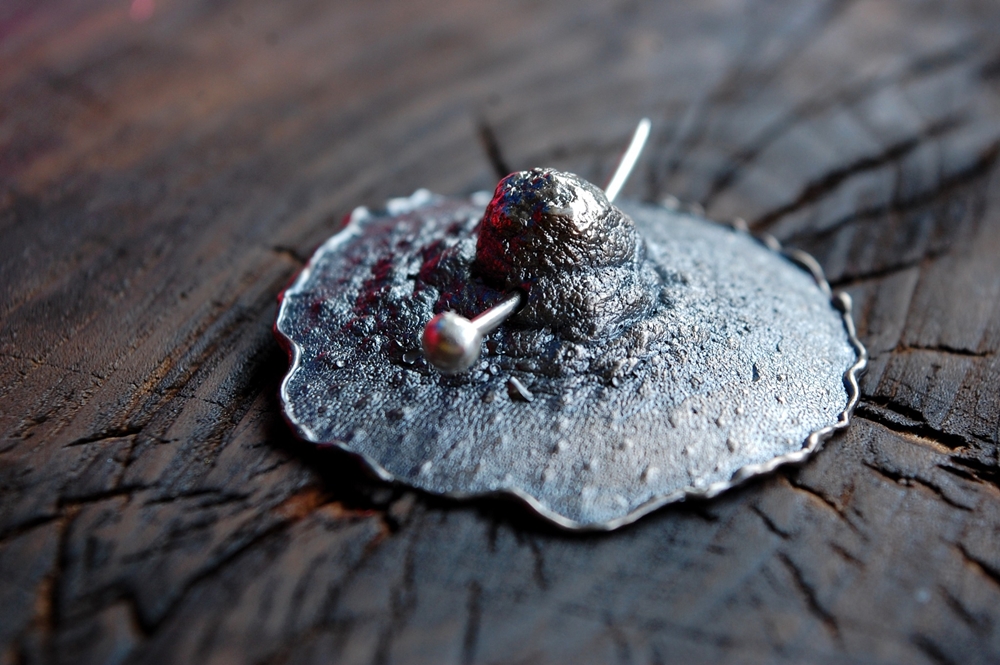TÖRZS is the biggest instrumental post-rock band in Hungary. Their last album was recorded at a UNESCO World Heritage cave system 500 meters below ground. It was released by A Thousand Arms (USA) and Golden Antenna Records (GER). 300 vinyl records were pressed in 2020 and sold out in a few months.
The band was featured at the Moscow Music Week showcase festival (2020) and Budapest Showcase Hub in 2021. We talked with them about their latest video ‘Átfordul – Live at Bükk‘, their new musical horizons, nature, and many other captivating stuff.
Hello! First of all, how did you start making music? Tell us a bit more about yourself!
Daniel: Soma and I went to the same primary school and have been creating music together since. The three of us and a singer have been playing together in our previous indie-rock band since 2009. Then in 2014, we started TÖRZS.
How do you think the band’s sound has evolved over the years? Did you always have in mind to sound the way you sound today?
Daniel: It was quite an organic and not planned journey. We always make music and write songs without any specific intention to sound like anything, any genre. We are trying to capture our feelings and experiences at the given time. Back in 2014 for example we were really feeling detached from society and were trying to get away as much as possible, you might hear that on the “Magasra fel” album.
Our music is rather in the sphere of truths that are not possible to be captured with words.
In 2016 all three of us were going through a lot of personal shit, and conflicts, and felt a bit bitter, which is the DNA of our second album “Földön”. In 2019 I think we started to appreciate life as it is. We started to feel a lot less furious. You could even say we kind of found our place in life. That’s “Tükör” for me in retrospect. Our new songs including ‘Átfordul’… I could not tell yet, as we are still in the process of analyzing and trying to understand where we are at.
‘Átfordul’, your latest single/video, seems to be some kind of introduction to a complex journey. Is there a hidden message?
Daniel: We are currently working on our new album. ‘Átfordul’, which could be translated to ‘turning over’ or ‘tipping point’ is our way of detaching from the “Tükör” album and getting ready for new experiences. “Tükör” has been the most important album for us I think. I could even say it was a bit numbing, that it felt like we could not do anything that could live up to the ‘Tükör – Live at Baradla cave’. I think by now we have let go of this comparison and we are just excited to share our new music with people who are interested in it.
How did the filming for this video go and what impediments did you encounter considering that the location is not really common?
Daniel: We were able to borrow a solar-powered huge battery so we were able to power all the sound and recording gear off the grid. It just felt so appropriate for us to play this song in the forest, where we felt totally comfortable. We have recorded our full-length last album live 500 meters below ground in a cave system with 95%+ humidity level, so compared to that it was quite easy.
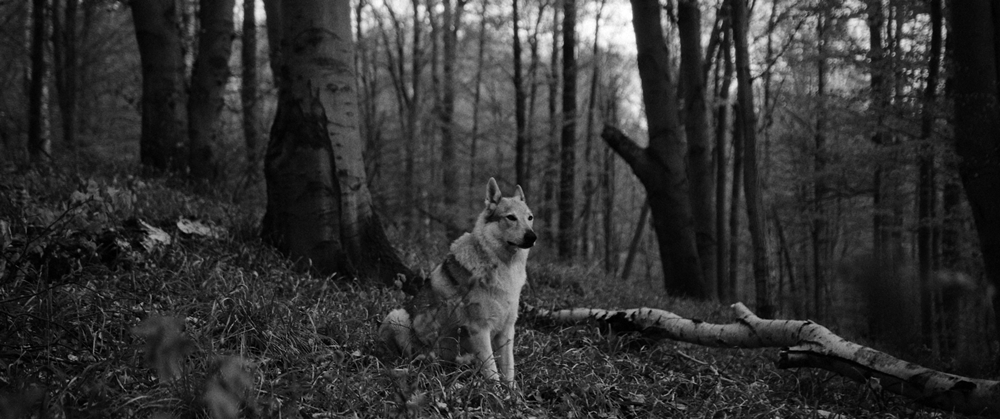
I think our music would love to spend time anywhere in the world as long as it’s outdoors, in nature, and possibly not dominated by a man-made environment.
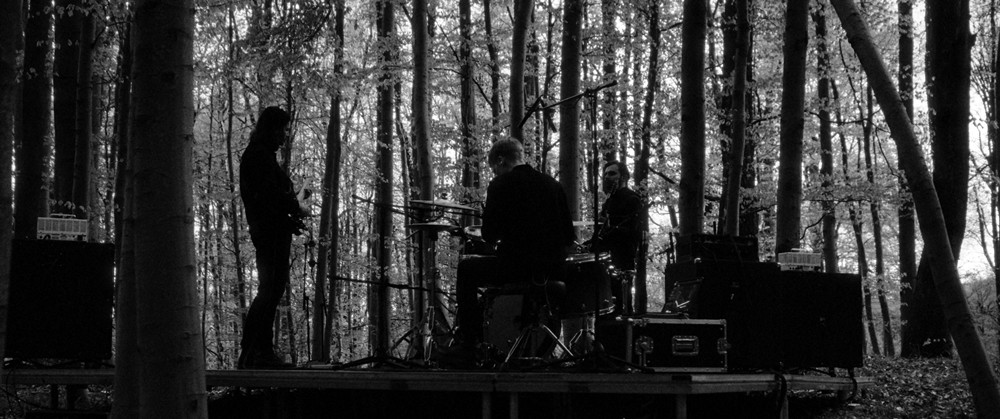
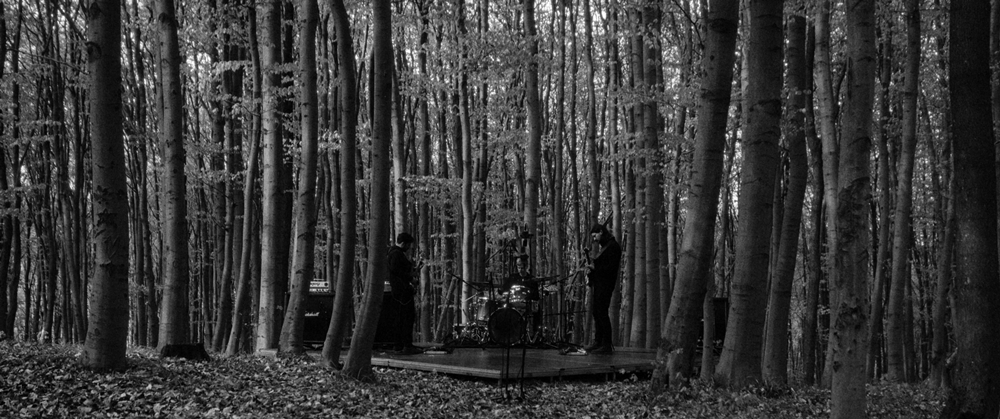
Take me through your sound design process. Does the conception come first or do the songs evolve naturally – do you have a clear idea of what it will be before you start to make it?
Zs: Every song’s process is different, but typically at the beginning of the songwriting process we refer to our feelings and intuitions more than concepts, to try and experiment and capture sounds or themes that inspire us, without treating them as songs yet. Later, as we begin to feel the shape of the future songs emerging from those ideas, we begin to consciously work on the individual songs by connecting themes and figuring out the missing parts.
When you are not busy creating, which other artists do you follow or listen to?
Daniel: From the instrumental artists that I listened to a lot in the last 5 years are Pink Floyd, We Lost The Sea, Explosions In The Sky, and some bands that we played with, like hubris., I Hear Sirens or Baulta. Foals have a special place in my heart, their first two albums were definitely an entry point for me. Ratatat is also a long-time favorite of mine. I listen to electronic artists like Tycho, Eskmo, Lorn, or Amon Tobin. But I have also been listening to Ska-P since I was a kid. And love to go to goa psy-trance daytime festivals… So all kinds of music.
What do you know to be true of the world and how is this truth expressed through your art?
Daniel: I think our music is rather in the sphere of truths that are not possible to be captured with words. Experiences, feelings, and natural phenomena that are only loosely connected to daily realities. Things you experience, but cannot really put into words.
In how much, do you feel, are creative decisions shaped by cultural differences – and in how much, vice versa, is the perception of sound influenced by cultural differences?
Zs: It’s hard to answer this question, as we can only experience making and listening to music from our own cultural perspective. Still, I feel that music with words in it is much more bound to its cultural background because a significant amount of the creative effort is in the language, which is naturally harder to decode for somebody coming from a different background. Instrumental music connects to people on a deeper, more universal level, so I’d say that the cultural differences are less apparent.
Our music could be a good companion for traveling, having inner discussions with yourself while walking for an hour.
Soma: I believe, music is above this thing, it’s a completely universal language. I really like music from various cultural backgrounds, even if I don’t understand the lyrics, the musicality makes me feel something from the message. This must be something our listeners experience, feelings and emotions generated are always a bit different, but they always have something in common.
Music has known a solid change once with the evolution and development of technology. How do you see this change given the fact that where technology appears, the emotion may lose its course?
Soma: I think every artist uses technology as a tool to make their message more clear. It can be new or old, but technology is connected to modern music in a lot of ways. It can open new paths to self-expression. In Törzs, as a rock trio, we play in a very traditional setup, we use vintage guitars and amps, but also we have some very new technologies, like reverb and delay pedals, and we try to use the best equipment for the purpose. Emotion is the main motivation for us, technology just helps us express ourselves.
What other creative outputs do you guys engage in that we may not suspect?
Daniel: Soma, our guitarist is a graph designer and motion designer. He’s responsible for all the album covers, flyers, promo videos, and visuals at our gigs. And he also released some electronic tracks under the name of somabalazs.
Given the state of mainstream culture that permeates how we consume media, how would you introduce your music to a stranger?
Zs: I think one of the reasons we like to record live is because then the listener can experience our music in its best form. I think it’s hard to describe music with words, so obviously, the best way to introduce it to someone is to allow them to listen, and the best way to listen to Törzs is when we are playing live. Or the closest thing, a video of us playing live.
When listeners make their way through your music and hear all the songs, what do you want them to feel? What kind of situation do you see your music accompanying?
Daniel: I would imagine that our music could be a good companion for traveling, having inner discussions with yourself while walking for an hour… Also, we’ve had the feedback that people like to listen to it at home with no distractions.
What does it mean to play and live in the millennial generation of post-rock artists? What do you borrow from those who came before you, and what do you do to push the genre forward?
Daniel: To be honest we were introduced to post-rock quite late. With our earlier albums, we did not feel that we’d belong to any subculture or genre. Then we discovered that post-rock exists and we felt like, okay, many aspects of this musical approach are quite close to our music. And we said hi to the subculture and we were really warmly welcomed. Post-rockers are really kind-hearted people who are truly passionate about music. Real music lovers who are open to new music. Although I think our music is not 100% post-rock, we feel like we belong here.
When you perform live, how do you want your audience to feel as they leave the show?
Daniel: I’d hope they were able to be present in their body for an hour and thus feel elevated and their mind would be less occupied with weekday troubles and frustrations. Hopefully feeling a bit more connected to themselves, their feelings, maybe even feeling lighter and keener for meaningful conversations.
Where do you think your music will find its fulfillment and inner peace if your music travels the world?
Daniel: I think our music would love to spend time anywhere in the world as long as it’s outdoors, in nature, and possibly not dominated by a man-made environment. I’d also picture our impersonated music to prefer less crowded places. Maybe hanging around with some chill and open-minded people in a small cottage in the middle of nowhere.
Follow TÖRZS on:
Facebook | Instagram | Bandcamp | Website | Spotify
